I originally wrote this piece in January 2023, prompted by the streaming series Fleishman is in Trouble. You don't need to have seen the show to follow the thinking here. The piece is about the erasure of feminism and the women's movement from public consciousness and the discrediting of these movements in the popular imagination. It’s as if the entire movement has been reduced to naggy white Karens, demanding to speak to the manager. That was a good idea, wasn’t it, to trivialize an analysis of sexism and misogyny? I wonder whose interests that has served. Now, as we all hang suspended in the hairy paw of global, militarized male supremacy, it feels especially important to me to name the ideology of male supremacy and its subset white supremacy for the forces they are. Also to pinpoint the ways these forces rig every game.
I watched all eight episodes of Fleishman is in Trouble (Hulu is promoting it again) so I could talk to you about the way it went into me and the way the women's movement has been cut out of the snapshots of our time—like tedious relatives you'd prefer to think were dead. I haven’t read the novel the show is based on, written by Taffy Brodesser-Akner, who also wrote the streaming series. If you need me to have read the novel, don’t read further.
For six episodes, a character called Libby (Lizzy Caplan), who is a writer, narrates events as they unfold in 2016. The story seems to be about a divorce between Libby’s friend Toby (Jesse Eisenberg) and his wife Rachel (Claire Danes)—in their early 40s. Toby is a doctor, and one night Rachel, who runs a theatrical talent agency, drops off their two children at his apartment and disappears for three weeks. He has to manage the children and perform in a demanding job, and from Libby’s perspective, this is a tragedy unknown in the annals of male human existence—well, she’s kinda not wrong. Libby is on Toby’s side, and in the story she tells, Rachel is a selfishly ambitious, ice-hearted social climber in fabulous clothes you would still want to wear no matter how scummy her behavior.
For six hours, Libby lets flow a white-water river of compassion for poor, poor Toby, poor guy, her friend from college, who has not until his divorce given her a thought. Poor guy, he needs her. And she goes to him because going to men is what she does. Also, it’s a way to dodge her own sawdust marriage. Libby has no female friends. Her dream job is to work at a men's magazine where she is reviled and trivialized. Her idol is a misogynist she wants to write like, exactly like him. From her perspective, there is nowhere else she can write because there just aren't places where women can write that are not misogynist holes of puke.
The kicker comes in episode seven, when Libby runs into Rachel, who is sitting in a park in a catatonic state. The women go to Rachel’s apartment, and suddenly, crash of symbols, suddenly, suddenly Libby recognizes she has spent her entire life not speaking to other women and now that she is speaking to another woman, she learns there is more to the break-up of Toby’s marriage and more going on inside Rachel than she knew. Wow.
This is the story. This is the revelation—Libby seeing she doesn’t like women and doesn’t feel interested in her own sex. And who is to blame for this? No one. There is no social context for this story. From the perspective of this story, the women’s movement never happened. Women have never worked collectively to address the miseries heaped on women for being women. From the perspective of this story, every damn woman has to invent feminism on her own. From the perspective of this story, every generation of women understands itself as separate from the history of women working together.
In order for this to be a story worth telling, you have to share the understanding of the series that every woman, separately, has to invent feminism. To see the insult this represents to the history of actual women organizing for six decades, imagine a TV series green lit for production about a Black man suddenly realizing that racism exists and, in not noticing before that racism exists, understands he has been a racist. Imagine a TV series green lit about a Jew discovering, guess what, there really was a Holocaust. Anyone want to put money up for that?
A similar erasure of the women’s movement drives the plot of the TV series Hacks (HBO) [I was writing about season one], starring Jean Smart as a comedian, who finds herself left in the dust with her self-loathing jokes. The series also stars Hannah Einbinder as a 20something writer, hired to hustle Smart to the current zeitgeist. Fine, fine, but Smart’s character is supposed to be in her sixties. She plays a kind of Joan Rivers standup who's made a lot of money selling products on QVC and selling out her intelligence. The problem with the show is that the chronology is off. If Joan Rivers were alive, she would be 89. Rivers was young enough to have become a feminist in the 1960s and 1970s and to have changed her shtick, but she didn't. It doesn't matter.
Smart's character was in her teens and early twenties when the women's movement swept everyone on the planet into its understandings, whether in excited agreement or raging opposition. Smart’s character did not need to hear about any of this from the 20something played by Einbinder. Einbinder says the kinds of things to Smart that women of my generation said to accomplished figures who had harnessed themselves to men, women like Lee Krassner: You don't have to make yourself smaller in the world to get by. And these women said back to us: We felt we did, and plus in those days we didn't have a movement. That's just it. Smart’s character did have a movement. It was right there. Hacks doesn’t care that it was right there. Hacks is counting on its audience not knowing or caring about the history of women’s activism.
Last August I read an essay in The New Yorker, written by Rachel Syme in praise of Nora Ephron. It’s a dreary piece of fluff intended, I suppose, to upgrade Ephron from something sweet you spread on toast to something more solid, perhaps the toast itself. Early in the piece, Syme tries to situate Ephron, who was born in 1941 and died in 2012, in her social context by quoting a piece Ephron wrote in Esquire in 1973, when she was 32. In the Esquire piece, Ephron is looking back at the ethos that formed her. She is looking back critically with perhaps a touch of nostalgia at Dorothy Parker. Dorothy Parker is who Ephron grew up wanting to become, only to discover later on that every other female human with a typewriter, in Ephron's sense of things, also wanted to be Dorothy Parker. Syme quotes the wish: “The point is the legend. I grew up on it and coveted it desperately. All I wanted in this world was to come to New York and be Dorothy Parker. The funny lady. The only lady at the table.”
The problem with Syme’s piece is she lets the trope of “the only lady at the table” sit on the plate like a dead lox. She doesn’t go near it, doesn’t think about its past or present relevance to the ways women form themselves. The wish to be “the only lady at the table,” what is that? Well, you know what that is. It’s being the glittering exception. The ape in evening clothes that has earned the reputation for the best blowjobs. By the best blowjobs, I mean many activities in addition to putting a penis in your mouth. I mean all the things Libby does in Fleishman is in Trouble. You separate yourself on purpose from other woman in order to be the only woman at the boys' table. And every boy at the boys' table understands the meaning of that defection as a vote for them.
The point is to get with men. Not even because you like them. Young Nora was thinking without thinking that men are the people she needs to entertain, so they will hire her. They will hire her because they own everything.
The great advance for females of my generation was coming together to name the ways we had been misidentified. Coming together to produce more range of motion for all women. We didn’t aspire to be the only woman at the boy’s table. We wanted to burn the table down. I still do.
How does this happen, this misplacing of women’s history? Well, obituaries for the death of feminism have been published every day in umpteen venues since feminism first poked its hydra-headed form out of dead earth. Part of the success of feminism is the way it has produced amnesia about its influence. All knowledge is written in disappearing ink. When we learn something, we think we’ve always known it. We forget the steps. Before feminism, not only was it okay to dominate women wherever women moved in the world, there was no term for it as a wrong—even a wrong that not many human care about.
I don’t consider a day complete that doesn’t include someone, and sadly often a woman, condemning feminism for not solving all the problems promoted by misogyny. Women still have to do more domestic work than men! Women still earn less money for the same work as men! Feminist values don’t speak to the needs of all groups of women on the planet! Yes, yes, correct. So we must work harder. Why is it okay to beat up feminism? Because, alas, you don’t think feminists will come for you in a dark alley with a well-aimed fist and a knife in their mouths. Also, there is a special social glee felt collectively in seeing women fail. Who is served if feminism disappears in each generation, and you have to invent fire, the wheel, and the light bulb every 25 years or so? Gee, I don’t know, Satan?
Additional thoughts concerning Fleishman:
In Episode 7, beloved Claire Danes wakes up as Carrie Mathison again, her tour de force part in Homeland! The next day, after watching the episode, I woke up hungry for beef lo mein. Every time Claire/Rachel spits out beef lo mein into the sink—and there are many times—I was like, oh damn, that looks good, I’ll eat it, give it over here. I loved the thing about her ordering the food over and over. It was far and away the best sequence in the show. The other thing I liked is when the asshole lover she goes off with gets bored at the spa and decides to leave, and Claire/Rachel buries her phone in the ground and looks so hot in that t-shirt because she's Carrie again, going to a place we all know, the place where because of some asshole guy you bury your phone and walk and walk and walk. The asshole lover gets bored because Claire/Rachel is being herself, a bit lost and farmisht (it’s Yiddish, look it up) and not trying to be pleasing, and he’s pissed at that. That's all it takes. Oh, my fucking god.
The horrible, horrible, horrible doctor scene is replayed in this episode from Rachel’s point of view. It's really horrible. Claire/Rachel is close to giving birth, and the doctor takes her body in his hands without her consent, forcibly breaking her water with a long instrument that causes her great pain, and he doesn't care. She’s a fish on a dock he has caught and filleted. Later, Claire/Rachel sees the horrible doctor in an elevator and freezes. This plays out real. But why in the show is there zero discussion anywhere of joining with other women to bring pressure against this doctor and these hospital practices? (Not a real question.) Instead, Rachel is hustled to an emotional support group, as if her experience is merely personal and psychological rather than structural in the social and political world she and other women live in. Oh, for fuck’s sake.
(A version of this piece was originally published in Oldster Magazine.)
_____________________________________________________
Biz
PLEASE CONSIDER TAKE A TURN AT PAID SUPPORT. It’s the only way the stack can continue. I do not have a paywall, I will never have a paywall. I will never write for free.
There are great new benefits, including a new Zoom series with guest authors. The first one, on June 28, with Steven Dunn, was rollicking and brilliant, and paid subscribers can request the recording by writing to me at: lauriestone@substack.com.
Our next guests, on July 26 from 3 to 4, are MARGO JEFFERSON and ELIZABETH KENDALL. Each has many acclaimed books, and they are writing a joint memoir of their relationship and creative projects. To RSVP, please write to me at: lauriestone@substack.com
Upcoming authors include novelist Emer Martin, poet David Daniel, Daisy Alioto, founder of the media empire Dirt, and Sophie Haigney, a writer and editor at Paris Review—this esteemed literary journal will soon be joining the Substack platform. More authors are planned, and please send me your suggestions for people to invite.
To celebrate the stack’s third birthday coming soon, new PAID SUBSCRIBERS and GIFT SUBSCRIPTIONS receive a discount right now.
_____________________________________________________
Happenings for paid subscribers.
The next Zoom Conversation is on Saturday July 26 from 3 to 4 EST with guest artists Margo Jefferson and Elizabeth Kendall.
TO RSVP, please email me at: lauriestone@substack.com
The Next Breakout Conversation
Is Sunday July 27 from 3 to 4 EST, where you can speak about a project you are working on, read a short piece, and receive feedback. To RSVP, please email me at: lauriestone@substack.com. There is a cap of 10 participants and an additional cost of $30.
To request a recording of the last Zoom Conversation on June 28 with Steven Dunn
Please email me at: lauriestone@substack.com
Working together one to one.
If you would like to book time to talk one-on-one about a project you are working on or for guidance in gaining confidence and freedom in your writing, please email me at: lauriestone@substack.com.
If you would like to book time to talk one-on-one about STARTING AND GROWING a Substack publication please email me at: lauriestone@substack.com. I can help you through the software, choosing a title, art design, and approaches to gaining readers.




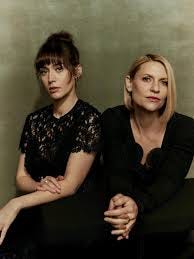
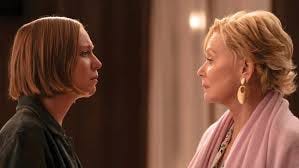
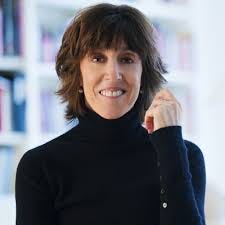
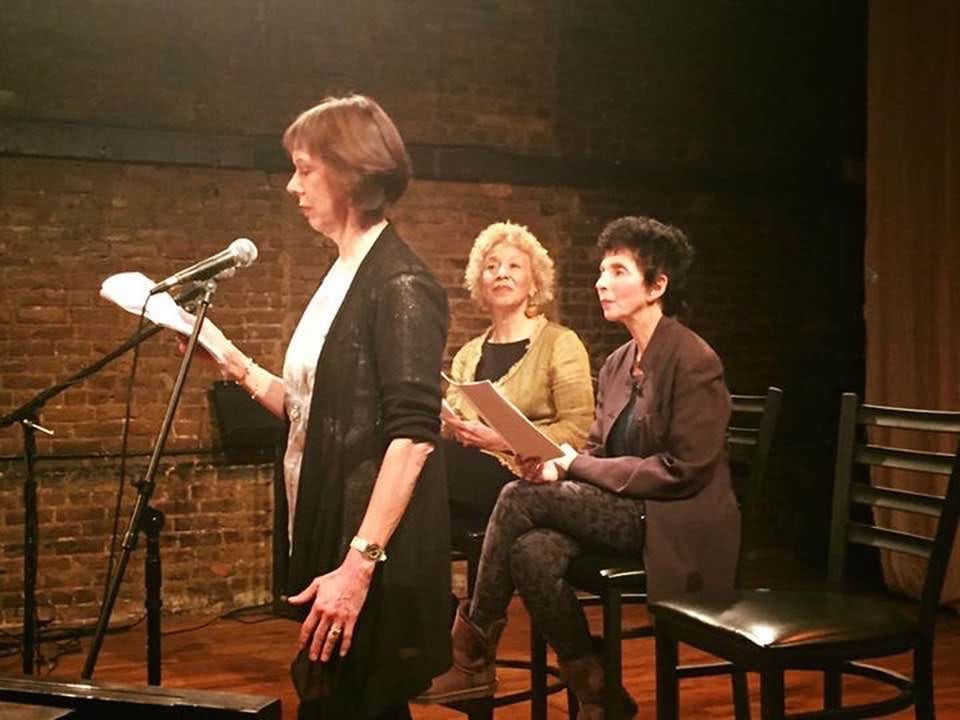
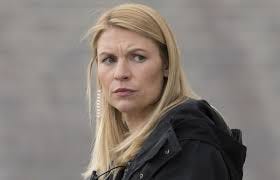
This note is from Christine Stansell, who asked me to post it for her: Wonderful.--The Girls at the Boys' Table. I was one of those girls, having gone to two colleges (Rice and Princeton when Pton had just admitted women) where the sex ratio was 5 men to 1 women and (at Princeton) 31 men: one woman in the lst year of coeducation. These experiences were critical to making me a feminist. Which has been one of the great gifts of my life. I learned a lot at the Boys' Table, but I have learned so much from the Girls/Women I have known, both of my own generation and the (now two) that have followed! half a century! Thanks, Christine Stansell
More, more, more. You are so good when you write about this...the disappearing ink of feminism is a wonderful metaphor...writing about the experiences of women makes you go deep, and what you dig up is G O L D.